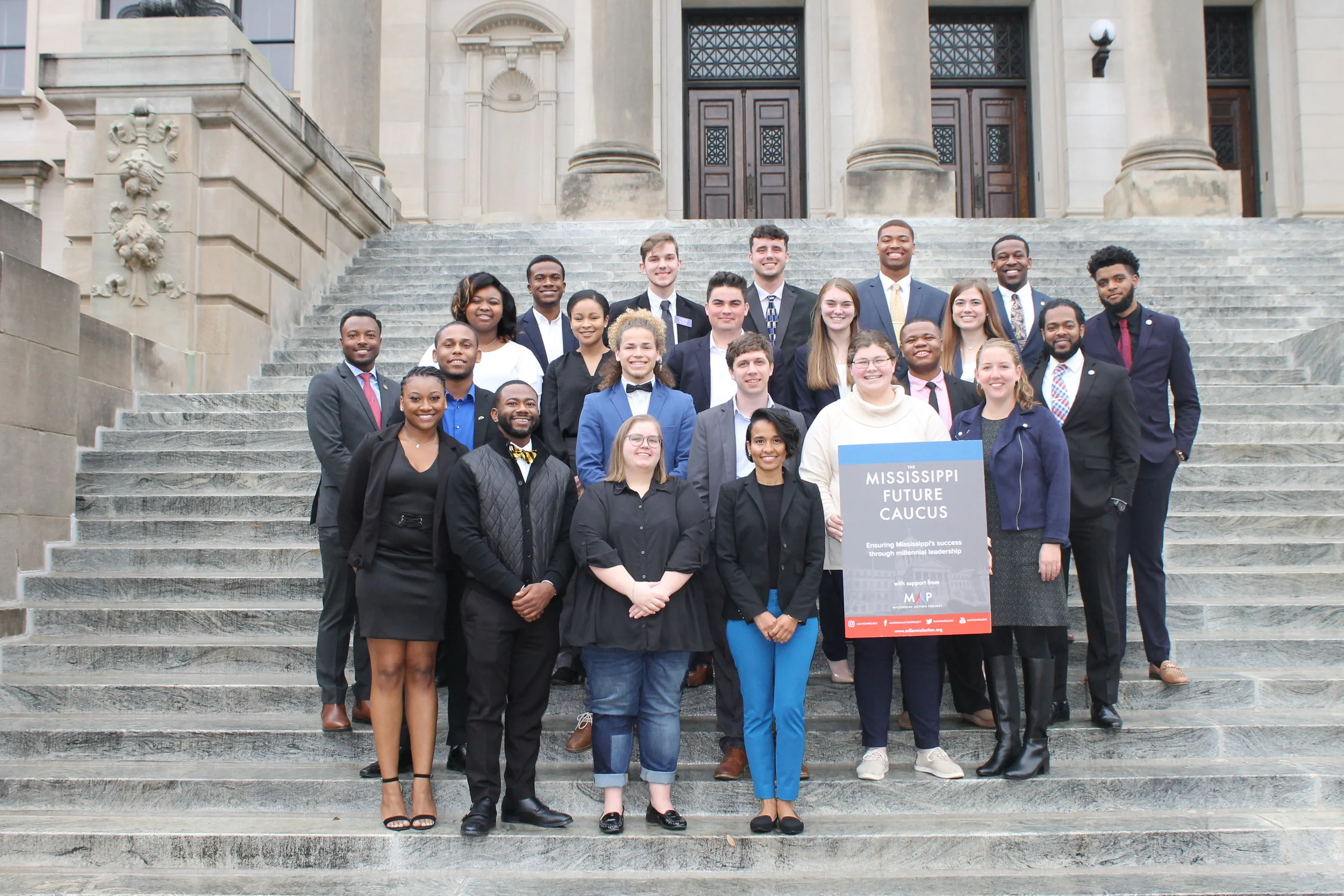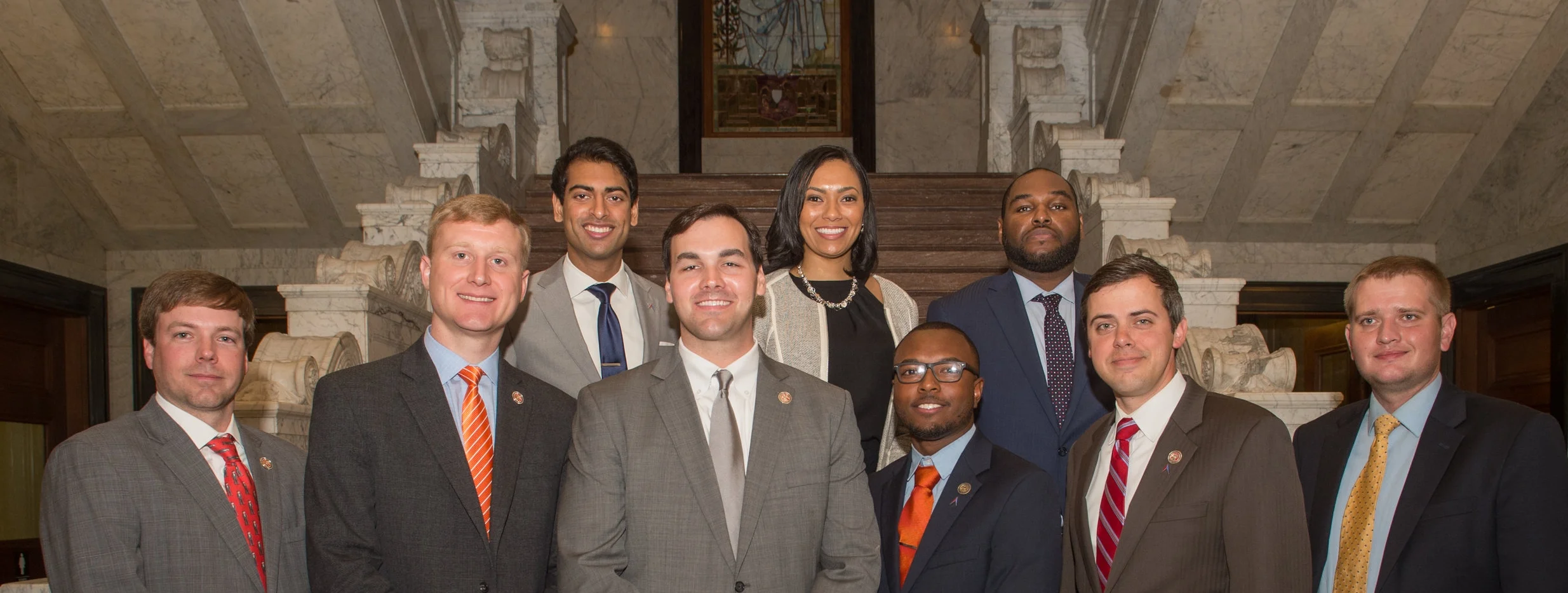Mississippi Future Caucus Co-Chairs
Emeritus co-CHAIRs
HB 1550: Addressing Mississippi's "Brain Drain"
CAPITOL - On Wednesday, Feb. 14, the Mississippi House of Representatives passed legislation to address the exodus of recent college graduates from the state of Mississippi, a problem that has come to be known as Mississippi's "brain drain."
Recent Events
The award recognizes bipartisan legislators from our State Future Caucus Network (SFCN) who have embodied MAP's mission to transcend political tribalism through their public service.
Mississippi HB 297, which passed the MS House on March 12th, is a great example of a post-partisan approach to absentee voting.
The Mississippi Future Caucus continues to work towards a culture of political cooperation in the great State of Mississippi. During MAP’s first ever National Week of Post-Partisan Action (NWPA), the MS Future Caucus filed a resolution acknowledging their commitment to transcend tribalism and lead on issues critical to the future of the state.
On January 12th, 2019, MAP and the Mississippi Future Caucus hosted students from seven colleges and universities throughout Mississippi to discuss voting on college campuses and civic engagement.
On Tuesday, March 7th, Representatives Jeramey Anderson (D) and Toby Barker (R) announced the creation of the Mississippi Future Caucus, a bipartisan group of state legislators under age 40. In doing so, they join the Millennial Action Project’s national movement of young elected officials breaking through partisan gridlock to reestablish political cooperation and create meaningful progress through government institutions.
Future Caucus News
On a January day more than 10 years ago, I first stood beneath the rotunda of the Mississippi state Capitol as an elected representative of the people of my hometown.
The Millennial Action Project, the largest nonpartisan organization of millennial elected officials in the U.S., awarded young state lawmakers from across the country for their work to bridge partisan divides in American politics.
The latest episode of “Meeting in Middle America” with host Steven Olikara features a discussion with Mississippi Representative Jeramey Anderson, who was the youngest African-American state legislator ever elected in United States history. The podcast highlights the state’s recent move to remove the confederate flag symbol from the state’s official flag, and Anderson’s involvement with that effort.
MAP is so excited to have connected Representative Jeramey Anderson with Rolling Stone to #amplifymelanatedvoices of Millennial leaders in our #FutureCaucus.
What a fantastic accomplishment! We are so proud of Rep. Anderson and the Mississippi Future Caucus, for which he is a co-chair, for making this dream a reality! They have been a driving force of this legislation for years, and we are thrilled to see it come to fruition.
Click to read the article.
The Millennial Action Project partnered with the Mississippi future caucus to talk about voting— Students from all over the state gathered at the state capitol to better understand the voting process. WJTV spoke with several students who found the summit to be beneficial.
Students from across the state talked problems they have experienced when trying to vote and discussed solutions to those problems. Students voiced their concerns to lawmakers and voting rights activists.
Lawmakers under age 40, both Democrats and Republicans are working to promote bills that encourage young adults to stay in Mississippi.
The House unanimously approved a measure Wednesday that backers say could help stem brain drain — the phenomenon of young professionals leaving the state, taking their talents and skills with them.
The Mississippi House of Representatives wants young people to stay in Mississippi. It unanimously passed a measure Wednesday to offer tax breaks to recent college graduates who stay in Mississippi and work in the state, immediately after graduation from a four-year college or university.
Forty percent of graduates from Mississippi's public universities have left the state five years after graduation, according to a recent report commissioned by the state College Board. On Wednesday, the House passed a bill 118-0 seeking to slow that brain drain from the state. The bill would exempt recent college graduates from state income taxes if they stay in the state for three years after graduation from a four-year college or university.





















